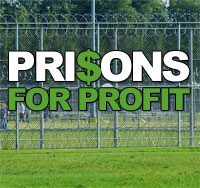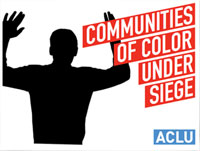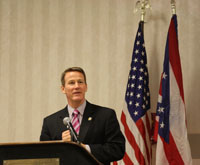News & Commentary
Police Body Cameras Are Promising, but Need Protections in Place
Photo: West Midlands Police via Flickr Creative Commons
By Gary Daniels

Recognizing African-American Advocates, Past and Present
Black History Month is a time to celebrate and reflect on African-Americans who have made great contributions to our country. The ACLU wants to acknowledge the impact of black activists, both past and present, who have made our work stronger. Founding Member James Weldon Johnson, who helped found the ACLU in 1920, was an early civil rights activist whose biggest passion for activism was to teach and write. The NAACP described Johnson’s philosophy “that it was important for blacks to produce great literature and art. By doing so, Johnson held that blacks could demonstrate their intellectual equality and advance their placement in America.” As a creative writing professor for Fisk University, much of his teachings focused on racial advancement, using it as a tool to address inequalities for African-Americans. Some of his most famous work includes The Autobiography of an Ex-Colored Man and God’s Trombones: Seven Negro Sermons in Verse. Time Doesn’t Heal All. Fast forward to present day, though strides have been made, we are far from equality.
By Regina Morin

American Bar Association Opposes Automatic Shackling of Juveniles in Court
This is the fourth in a series of posts on the topic of juvenile shackling. More often than not, progress happens in steps. That was certainly true of the American Bar Association’s (ABA) evolving policy on juvenile justice. In 2014, the ABA passed a resolution urging the “development of trauma-informed, evidence-based approaches and practices on behalf of justice system involved children and youth who have been exposed to violence, including child abuse and neglect or other crimes and those subject to delinquency or status offence proceedings.” The resolution also noted that, “Some routine juvenile justice practices, such as solitary confinement, isolation, and restraint, can further traumatize youth and cause them additional harm.”

Stay Informed
Sign up to be the first to hear about how to take action.
By completing this form, I agree to receive occasional emails per the terms of the ACLU’s privacy statement.
By completing this form, I agree to receive occasional emails per the terms of the ACLU’s privacy statement.






